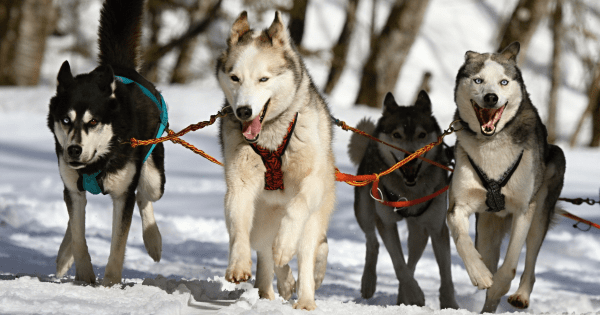Bringing a dog into your life is a rewarding and transformative experience. For first-time dog owners, however, it can also be overwhelming. The responsibility of caring for a new furry friend involves more than just feeding and walking; it encompasses a wide range of considerations to ensure your dog’s health and happiness. This comprehensive guide covers essential dog care tips for first-time owners, providing you with the knowledge you need to give your new pet the best start possible.

1. Choose the Right Dog for Your Lifestyle
Before bringing a dog home, consider your lifestyle and living situation. Different breeds have varying needs in terms of space, exercise, and grooming. For example, active breeds like Border Collies require more exercise and mental stimulation compared to smaller, less active breeds. Research different breeds to find one that matches your lifestyle and living environment.
2. Prepare Your Home
Creating a dog-friendly environment is crucial for your pet’s well-being. Remove any hazards such as toxic plants, small objects that can be swallowed, and exposed electrical cords. Ensure that your dog has a designated area for sleeping and eating. Invest in essential supplies, including a comfortable bed, food and water bowls, a collar and leash, and appropriate toys.

3. Establish a Routine
Dogs thrive on routine. Establishing a consistent daily schedule helps your dog feel secure and understand what to expect. This routine should include regular feeding times, walks, playtime, and bathroom breaks. Consistency helps prevent behavioral issues and makes training easier.
4. Proper Nutrition
Feeding your dog a balanced diet is fundamental to their health. Consult your veterinarian to determine the best food for your dog’s age, breed, size, and health condition. Quality commercial dog foods contain the necessary nutrients for a dog’s overall well-being. Avoid feeding your dog human food, as some items can be toxic to dogs.
5. Regular Exercise
Exercise is essential for a dog’s physical and mental health. Regular walks, playtime, and interactive activities keep your dog fit and prevent boredom. The amount of exercise required varies by breed and age, so tailor the activity to suit your dog’s needs. Exercise also helps in managing weight and reducing behavioral problems.
6. Training and Socialization
Training your dog is crucial for a harmonious relationship. Basic commands such as “sit,” “stay,” and “come” are important for safety and obedience. Positive reinforcement techniques, such as treats and praise, are effective in training. Socialization is equally important; expose your dog to various people, environments, and other dogs to help them become well-adjusted and confident.

7. Grooming
Regular grooming keeps your dog clean and comfortable. Brush your dog’s coat to reduce shedding and prevent mats, and trim their nails to avoid discomfort. Depending on the breed, your dog may require professional grooming. Bathing should be done as needed, but avoid over-bathing, which can strip natural oils from the skin.
8. Veterinary Care
Regular veterinary visits are essential to monitor your dog’s health. Schedule an initial check-up as soon as you bring your dog home. Your vet will provide vaccinations, perform health screenings, and offer advice on preventive care. Regular check-ups help catch potential health issues early and keep your dog up-to-date with vaccinations and flea/tick preventatives.
9. Dental Health
Dental care is often overlooked but is vital for your dog’s overall health. Brush your dog’s teeth regularly with a toothbrush and toothpaste designed for dogs. Dental chews and toys can also help reduce plaque and tartar buildup. Regular dental check-ups are important to prevent oral diseases and discomfort.
10. Identification and Microchipping
Ensure your dog has proper identification. A collar with an ID tag containing your contact information is essential. Additionally, consider microchipping your dog as a permanent form of identification. Microchips greatly increase the chances of reuniting with your dog if they become lost.

11. Mental Stimulation
Mental stimulation is as important as physical exercise for your dog. Engage your dog with interactive toys, puzzle feeders, and training exercises to keep their mind active. Mental challenges prevent boredom and can help alleviate destructive behaviors.
12. Recognize Signs of Illness
Being aware of your dog’s normal behavior and physical condition helps in identifying potential health issues early. Watch for changes in appetite, energy levels, or bathroom habits, as these can indicate health problems. If you notice any unusual symptoms, consult your veterinarian promptly.
13. Create a Safe Environment
Ensure your home is a safe place for your dog. Secure trash cans, keep harmful chemicals out of reach, and provide a safe space where your dog can retreat if they feel overwhelmed. Properly fence your yard and supervise your dog during outdoor activities to prevent accidents.
14. Establish a Bond
Building a strong bond with your dog is crucial for a healthy and happy relationship. Spend quality time together through play, training, and relaxation. Your dog will respond to your affection and care, strengthening the bond between you.

15. Prepare for Emergencies
Be prepared for emergencies by having a first aid kit and knowing basic first aid for dogs. Familiarize yourself with the nearest emergency veterinary clinic and have their contact information readily available. Preparation helps you respond quickly and effectively in case of an emergency.
Caring for a dog involves commitment and responsibility, but the rewards are immeasurable. By following these essential dog care tips, first-time owners can provide a loving and healthy environment for their new furry friend. Remember, every dog is unique, so continue to learn and adapt to meet your pet’s specific needs. Your dedication to their care will result in a happy, well-adjusted, and loyal companion.
READ NEXT: Essential Considerations When Owning a Dog: A Comprehensive Guide

Thank you for writing this post. I like the subject too.
Thank you for your help and this post. It’s been great.